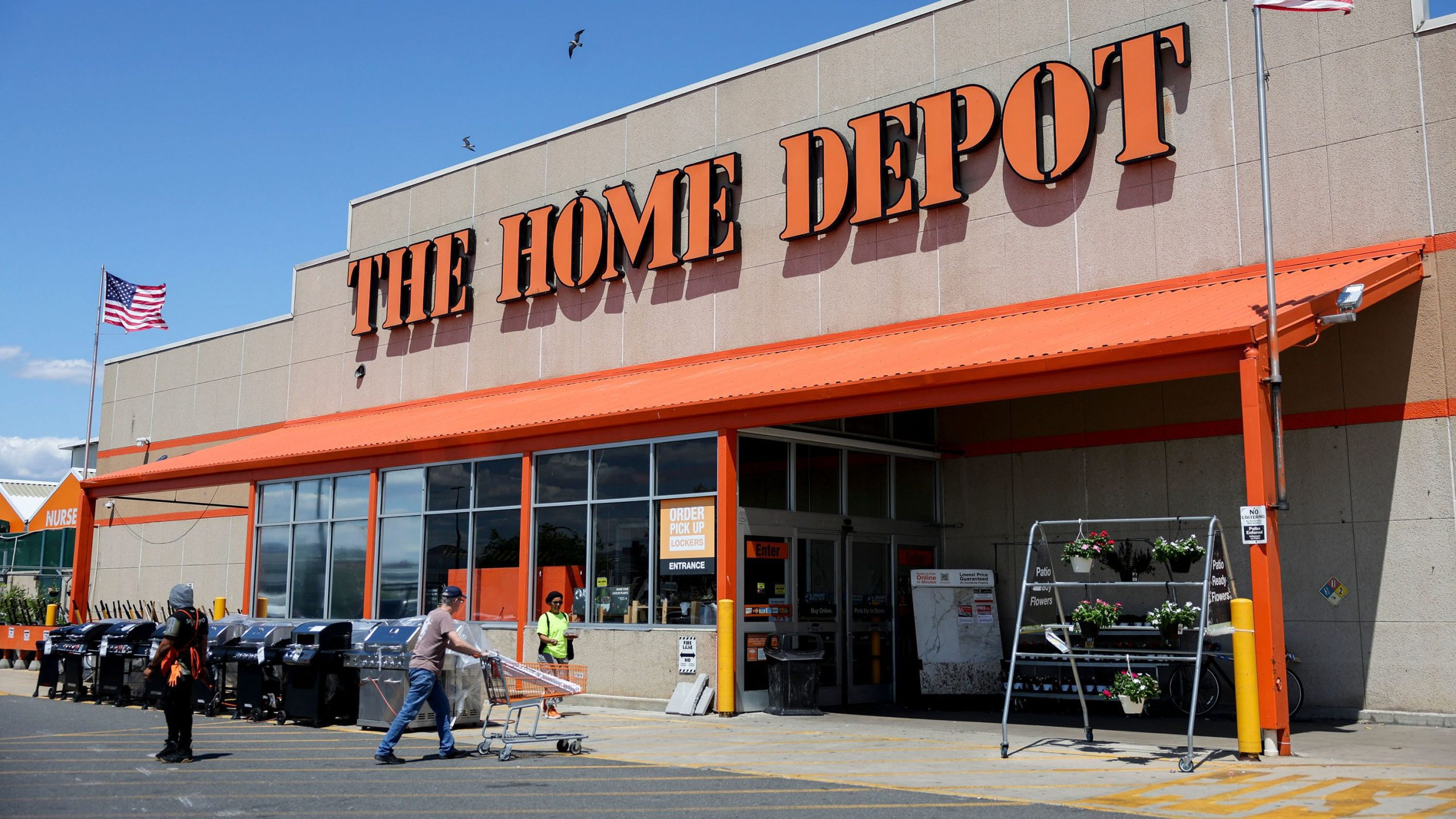The Home Depot Inc. is the largest home improvement retailer in the United States, with a market capitalization of approximately $350 billion. Founded in 1978 by Bernie Marcus and Arthur Blank, the company revolutionized the retail hardware sector by offering do-it-yourself (DIY) solutions to homeowners and professionals alike. From tools and construction supplies to renovation services and workshops, Home Depot is the go-to destination for millions of Americans embarking on home improvement projects.
Origins and Growth Journey
The idea behind Home Depot was simple yet revolutionary: create a warehouse-style store where customers could find everything needed for home repairs and renovations—at competitive prices and with knowledgeable service. The first two stores opened in Atlanta, Georgia, and were met with enthusiastic consumer response. By the mid-1980s, Home Depot had gone public and expanded across the United States.
Its growth mirrored that of retail juggernauts like Walmart and Amazon, combining aggressive expansion with an unwavering focus on customer satisfaction. Today, Home Depot operates over 2,300 stores across North America.
In recent years, Home Depot has also made strategic acquisitions—such as HD Supply—to strengthen its Pro business, while investing in high-tech distribution centers and localized inventory planning.
Products and Services
The Home Depot Inc product categories are vast and include:
- Tools and hardware
- Paint and décor
- Lawn and garden supplies
- Building materials
- Flooring and tiles
- Kitchen and bath fixtures
- Lighting and electrical
- Plumbing and HVAC equipment
Beyond products, Home Depot offers installation services, tool rentals, truck rentals, and workshops for DIY customers. Its online platform has grown significantly, allowing customers to order online and pick up in-store—bridging convenience and personal service.
The company’s ever-expanding “Project Guides” and “How-To” content empower consumers with knowledge, helping even first-time renovators complete complex tasks. This educational edge gives Home Depot a major advantage in customer retention.
This omni-channel approach is similar to strategies employed by firms like Apple and Microsoft, who blend digital innovation with in-person excellence.
Customer Segments: DIY and Pro
Home Depot caters to two main customer segments:
1. DIY Customers: These include homeowners, renters, and hobbyists looking for supplies and guidance on improvement projects.
2. Pro Customers: Contractors, electricians, plumbers, and builders who rely on Home Depot for large-volume purchases, job-site delivery, and specialized services.
The company has significantly enhanced its Pro offerings, including loyalty programs and dedicated sales teams, to increase its share in the professional contractor market—similar to how Visa and Citi Strata Elite tailor financial tools for both retail and business clients.
Technological Innovation
The Home Depot Inc. has not been left behind in the digital revolution. The company has invested heavily in:
- Mobile app features like voice search and AR-based project planning
- Warehouse robotics and automation
- AI-driven inventory management
- Digital dashboards for professional contractors
These innovations have optimized supply chain logistics and enhanced customer experiences, aligning Home Depot with future-forward companies like NVIDIA and Meta Platforms.
In addition, the company uses advanced geolocation tools and data analytics to personalize marketing, ensure real-time stock levels, and adjust pricing dynamically.
Financial Stability and Market Position
With consistent revenue growth and strong earnings, Home Depot remains a favorite among long-term investors. The company has posted annual revenues exceeding $150 billion and maintains a high dividend yield, signaling both financial strength and shareholder commitment.
Its operational efficiency and return on invested capital are comparable to stalwarts like Berkshire Hathaway and Johnson & Johnson, making it a reliable pick in any portfolio.
Notably, The Home Depot Inc has shown resilience during economic downturns, including the 2008 housing crash and the COVID-19 pandemic, both of which drove a surge in DIY projects and home renovations.
Sustainability and Corporate Responsibility
The Home Depot Inc is advancing environmental and community-focused initiatives:
- Reduced carbon emissions through supply chain efficiency
- Responsible sourcing of wood and other materials
- Energy-efficient store designs
- Veterans’ programs and skilled trades training
The company’s “Eco Options” program allows customers to choose energy-saving and environmentally friendly products, contributing to greener homes nationwide.
These efforts reflect a growing corporate ethos aligned with sustainability, much like Tesla in transportation and JPMorgan Chase in financial services.
Challenges and Resilience
Like all major retailers, Home Depot faces challenges such as:
- Inflationary pressures
- Labor shortages in skilled trades
- Competition from online retailers
Despite these hurdles, the company has demonstrated resilience through strategic investments, high employee retention, and superior supply chain management.
It also benefits from the long-term trend of rising home ownership, aging housing stock, and increasing consumer interest in smart home upgrades.
The Road Ahead
Home Depot’s future strategy includes:
- Expanding fulfillment centers for faster delivery
- Strengthening relationships with Pro customers
- Innovating in smart home technology
- Global expansion in select markets
- Enhancing in-store automation and personalized shopping
With continuous improvement in logistics and customer service, the company aims to preserve its dominance in the home improvement sector.
Conclusion: More Than Just a Hardware Store
The Home Depot Inc is more than a retailer—it’s an essential part of how millions of people build and maintain their lives and businesses. By combining retail excellence with digital innovation and community investment, Home Depot is well-positioned to thrive in the years ahead.


